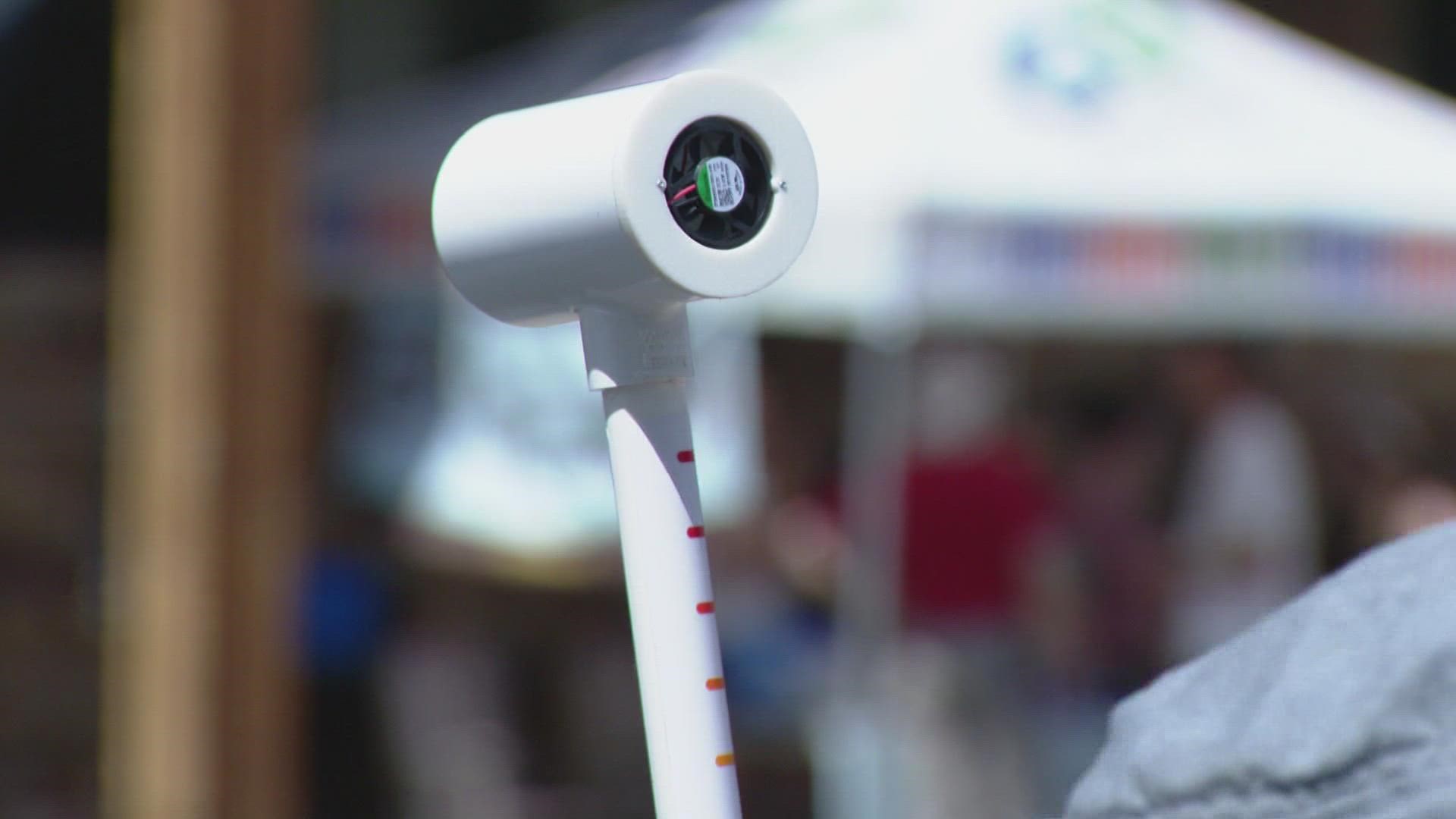BOULDER, Colo. — Playing scientist for the day was enough to briefly distract Juli Bratun from the summer heat in Boulder.
“I’m having fun!" Bratun said, the sun beating down on her as she walked along the Boulder Creek Path Friday afternoon.
She carried a clipboard, her phone and a small heat sensor in her hand.
"I’m going to different places and I am sitting here for five minutes with this device and I’m hooked up to an app,” Bratun explained.
Bratun walked around the downtown area, making stops to record the temperature recorded by her sensor.
“We got 101.1 [degrees]," Bratun read from the app on her phone. “Wow. Oh my gosh.”
Bratun was one of several citizen scientists collecting data on Friday to help the City of Boulder and the National Oceanic and Atmospheric Administration (NOAA) with a special project.
“We’re a part of this 17-city initiative this summer where NOAA gave us these special types of temperature devices that are designed to be driven around," said Brett KenCairn, Boulder's senior policy advisor for climate and resilience.
The goal of the initiative is to pinpoint neighborhoods most impacted by extreme heat.
City landscapes are typically hotter than surrounding rural areas. It's a phenomenon called an urban heat island.
“The projections are that most cities over 50,000 in size are going to start to see weeks above 100 degrees coming, and so we have to really look at how we’re going to prepare our communities for these kinds of changes," KenCairn said.
NOAA provided Boulder with sensors that could be attached to car windows. Volunteers drove the sensors along seven designated routes through the city during the morning, afternoon and evening.
“Today’s work is really about getting that baseline of how temperature behaves in our community under the conditions that we have," KenCairn said.
Data collected on Friday will help create a heat map of Boulder, KenCairn explained. The findings could ultimately lead to climate solutions for individual neighborhoods.
"It helps us to figure out where do we need to target our activities, whether it’s urban forestry or removing impervious surfaces or other strategies to kind of bring that temperature down," KenCairn said.
Volunteers like Juli Bratun were hopeful their work as citizen scientists would help their community.
“What I hope it does is sensitize us all to what subtle changes in environment make to people’s comfort," she said.
The NOAA project complements Boulder's efforts with "Cool Boulder," an initiative that seeks to find natural climate solutions. Boulder will share data with NOAA from its own stationary heat sensors already placed around the city to help create a detailed heat map.
SUGGESTED VIDEOS: Colorado Climate

